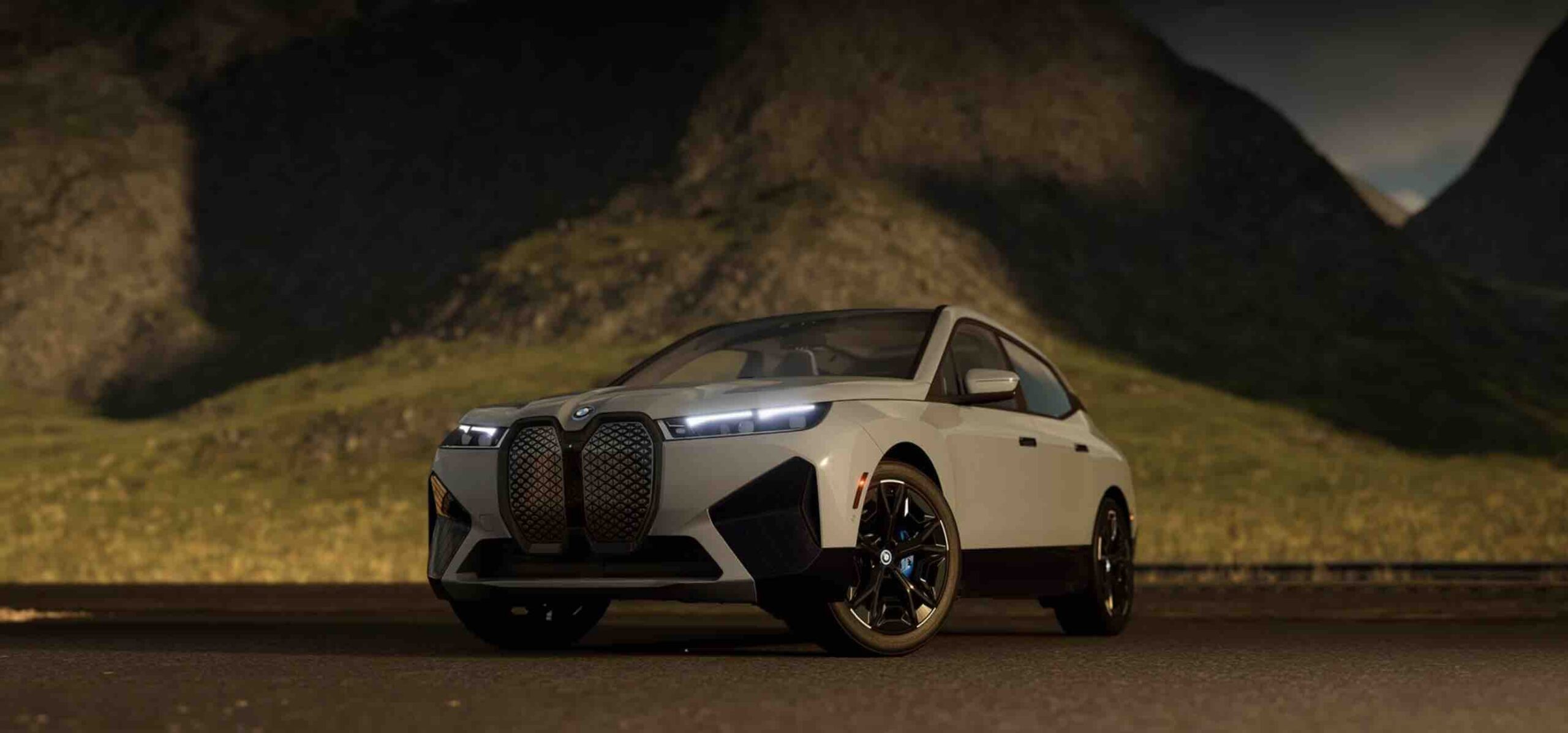(Bloomberg) —
From regenerative braking to the quiet hum of battery-powered cruising, electric vehicles are upending many a fundamental when it comes to the traditional driving experience. Slide into the cockpit of a contemporary EV, though, and you’ll notice another bit of hardware getting an unexpected rethink: the humble interior light.
Gone is the jaundiced bulb that blinks on when a car door is opened, the one your parents warned had to stay off while the vehicle was in motion. In its stead? A veritable LED disco. Today the interior of nearly every battery-powered car is veined with lights in the dashboard, door frames, foot wells and ceiling.
Drivers of the Cadillac Lyriq, for example, can change the cockpit lights to virtually any hue using a touch-screen color wheel. The BMW XM hybrid, meanwhile, has recessed lights bordering the entire headliner, which makes the car feel like a swanky club or a museum, depending on the chosen shade. At night, the cockpit of the Mercedes EQS SUV is a symphony of lights conducted by the accelerator: Speed away from a stoplight and they pulse red.
To hear automakers tell it, the right lighting goes a long way. “Fill the cabin with light that reflects mood or creates emotion,” Cadillac intones of the Lyriq’s ambient options. But in reality, lights are a cheap trick — and that’s kind of the point, says Maeva Ribas, director of The CarLab, a consultancy that helps auto giants develop new vehicles. As carmakers go electric, they’re sending more resources — in budgets and brains — straight to battery-powered models. That means anyone looking for the latest, greatest and most frivolous in auto innovation will increasingly find it in an EV.
“All the new cool stuff, generally speaking, is going into these new EV products, because there is kind of a limitation in how much capital in general is going into legacy ICE platforms,” says Mike Ramsey, an auto analyst at Gartner.
Take the BMW iX. Its stereo is turned up by twirling a finger in the air, its doors are heated, and the car’s yawning sunroof snaps from crystal clear to opaque with the push of a button. Rivian’s R1T pickup and R1S SUV have built-in air compressors on board, so they can refill their own tires after driving off-road.
In the Fisker Ocean, the center screen rotates from vertical to horizontal (the carmaker calls it “Hollywood mode”), while the Polestar 2 has an adaptive air filter that cranks into higher gear when it detects pollen and pollutants. The Genesis GV70 boasts active-noise cancellation in the cabin and a fingerprint scanner that configures the car for whoever is behind the wheel. In the Nissan Ariya, one button moves the whole center console — gear selector, cupholders, etc. — to the rear, which affords the driver both more space up front and some Captain Kirk cosplay.
All of this EV cockpit peacocking doesn’t mean gas cars are disappearing: After climbing by a third in 2023, global annual EV sales are expected to increase just 19% this year, according to a forecast by BloombergNEF. Many of the legacy gas-burning platforms are being extended as auto executives pump the brakes on the EV transition. But Ramsey expects the R&D momentum, in particular, to stay focused on electric models. “From now on, [for gas-burning cars] it’s going to be iterative,” he says. “There’s a desire for EV vehicles to seem more technologically advanced.”
Read More: Are Car Touch Screens Getting Out of Control?
At CarLab, Ribas says she and her team are constantly asked by carmakers to cram EVs with as many tech gizmos as possible. It’s a clever way to cover the crummy economics of an electric drivetrain, she says, and specifically the high cost of batteries.
“Unfortunately, right now, all the [original equipment manufacturers] are doing what we call the shotgun approach,” she says. “We’re just packing the cars with stuff — a bunch of features that are not necessarily added value for the consumer.”
The battery on the BMW iX, for example, has a capacity of 110 kWh, which costs BMW around $15,000, according to BloombergNEF. That’s the main reason the model starts at $87,100 — nearly one-third more than a similarly sized gas-burning BMW. It’s a price made more palatable by a bit of cockpit wizardry.
Why not, for example, have an EV app that changes the way music sounds based on how the car is being driven? That’s what Mercedes debuted at CES last week as part of a collaboration with musician Will.i.am. “Every single drive will have a different version of whatever song that they’ve been driving to,” the Black Eyed Peas founder told Car and Driver.
Ironically, the interior-innovation approach is more evident outside of the luxury brands. Ford customers, for example, aren’t thrilled about paying $43,000 for a small SUV — the starting price of its electric Mustang Mach-E — when a Mustang that runs on dead dinosaur goo starts at $31,000. That’s one reason the Mach-E has a supersized iPad on the center stack, while internal-combustion Mustangs have something more comparable to a Kindle.
“Generally, carmakers have come to the realization that affordable EVs aren’t doable,” says CarLab founder Eric Noble. “So if you’re going to sell only 20,000 units a year, you might as well have those be satisfied people and have those be $70,000 cars.”
Shopping for an EV? Compare models by price, range, charging speed and sustainability with Bloomberg Green’s Electric Car Ratings for the US and UK markets.
To contact the author of this story:
Kyle Stock in Denver at kstock6@bloomberg.net
© 2024 Bloomberg L.P.





